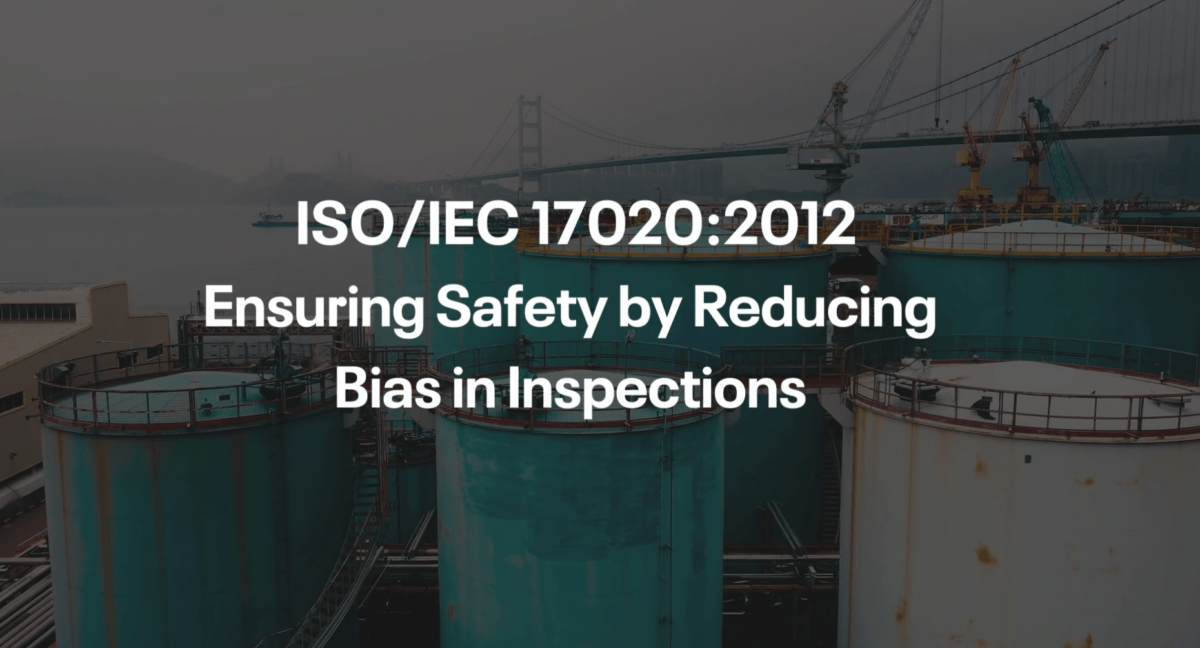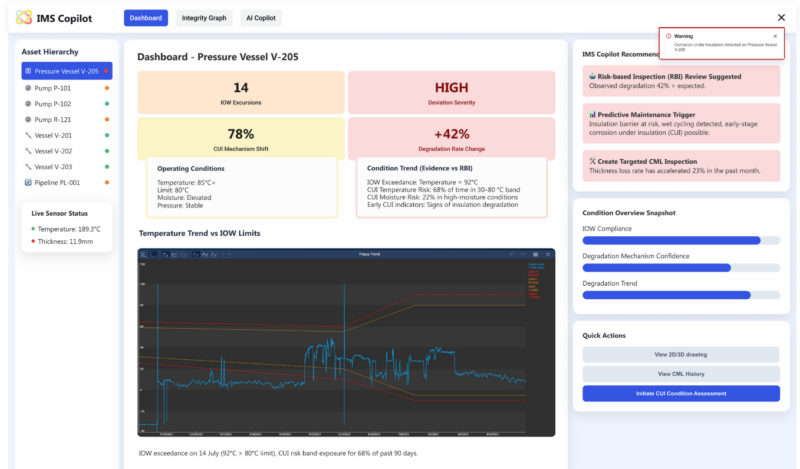Oxford Dictionary defines safety as “the condition of being protected from or unlikely to cause danger, risk, or injury.” The public, industry, and regulatory agencies can all agree that ensuring safety is of paramount importance.
Inspections play a crucial role in maintaining safety, quality, and compliance with standards in the oil and gas, energy, and chemical industries. Regulatory agencies do not have the resources to inspect every piece of equipment in these environments and thus rely on inspection bodies to carry out inspections. However, how do we ensure that those inspection bodies return unbiased and independent inspection results that can be relied upon by both industry and regulators?
The ISO/IEC 17020:2012 standard sets out how to ensure an organization employs an unbiased and independent inspection regime.
ISO 17020: What is it?
According to the International Organization for Standardization (ISO), “ISO/IEC 17020:2012 is an international standard that specifies requirements for the competence of bodies performing inspection activities and for the impartiality and consistency of their inspection activities.”
The standard outlines the criteria that inspection bodies must meet to ensure they can provide reliable and consistent inspection services. It covers aspects of inspection bodies’ operations, including organizational structure, competence of personnel, impartiality, confidentiality, and the procedures they use for conducting and recording inspection results.
The main goal of ISO 17020 is to ensure that inspection bodies have the necessary expertise and quality management systems in place to carry out inspections effectively, accurately, and with integrity.
Types of Inspection Bodies
Section 4 of the ISO/IEC 17020 Standard defines three distinct types of Inspection Bodies:
- Type A: Third-party inspection body.
- Type B: Part of an organization but forms a separate part that provides inspection services to its parent organization.
- Type C: Part of an organization, with safeguards in place to ensure segregation of responsibilities and accountabilities between inspection and other activities.
Section 5 of the Standard goes on to define the structural requirements for inspection bodies. Specifically, Inspection Bodies must:
- Be legal entities, or a part of a legal entity, that can be held legally responsible for its inspection activities.
- Carry adequate provision to cover legal liabilities arising from its operations.
- For third-party inspection bodies: Must have documentation describing the contractual obligations under which they provide inspection services.
Right off the bat, we can see that there might be some concerns with the impartiality of inspections carried out by in-house inspection bodies.
Can ISO 17020 Type C Inspection Bodies be Truly Independent?
In many situations, the answer is yes. It is possible for in-house inspection bodies to be independent and impartial, and the ISO/IEC 17020 standard recognizes that fact.
However, many regulatory agencies in Europe have decided that Type C inspection bodies, as defined by the Standard, are not adequate for compliance with inspection requirements in many industries.
What are Some of the Other Requirements for Inspection Bodies?
Section 5 of ISO/IEC 17020 goes on to define some of the specific structural requirements for inspection bodies including documenting the reporting structure of an organization, technical competency requirements and job descriptions for individuals involved in inspection activities.
Section 6 deals with the Resource Requirements of the Inspection Body. It is broken up into three main sections: Personnel, Facilities and Equipment, and Subcontracting requirements.
Section 7 is broken up into six subsections which deal with the general process and documentation requirements for inspection methods and procedures, handling of samples, inspection records, inspection reports and certificates, and complaints and appeals processes.
Section 8 of the Standard states that an Inspection Body “shall establish and maintain a system that is capable of achieving the constant fulfillment of the requirements of this International Standard.”
How can you Fulfill the Requirements of ISO 17020?
Section 8 of the Standard provides two options for systems that meet its requirements.
Option A refers to a management system that addresses the following items:
- control of documents;
- control of records;
- management review and documentation;
- internal audit;
- corrective actions;
- preventive actions; and,
- complaints and appeals,
While option B refers to an Inspection Body that employs a management system in accordance with ISO 9001’s requirements.
What About Your Organization?
Does your organization conduct inspections using a Type C inspection body? Then, the upcoming regulatory changes in the Netherlands will require that you transition into a Type B inspection body.
If you currently conduct inspections through a Type B inspection body, do you rely on paper checklists and extensive paper trails to conduct your inspections? If you do, it is time to modernize your record-keeping systems.
Luckily, Cenosco can help.
How can Cenosco Help?
Cenosco’s Integrity Management System (IMS) is a suite of industry-leading tools for managing inspections in asset-intensive industries.
IMS allows inspectors to create inspection records using Dynamic Forms Checklists directly in the field, interfaces seamlessly with SAP, JD Edwards, and other CMMSs (Computerized Maintenance Management Software), and provides sophisticated tools for the control of inspection records.
IMS also handles all aspects of inspection approvals, ensures that employees conducting inspections and approvals are acting in their appropriate roles, and provides a comprehensive paper trail for inspections.
Cenosco has the tools and experience to help organizations meet the documentation and tracking requirements of ISO/IEC 17020. Let us help you build and maintain your company’s inspection regime! Fill out the form below to get a free consultation.
Free Consulation
Fill out the form below and we’ll be in touch with you shortly!

Tomislav Renić Technical Writer
Tomislav is an experienced engineer and technical communicator with over 20 years in complex systems, modeling, and project management. As a Technical Writer at Cenosco, he translates engineering concepts into clear, user-friendly documentation for software in the oil, gas, and refining industries.






